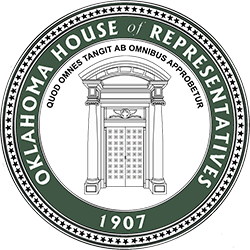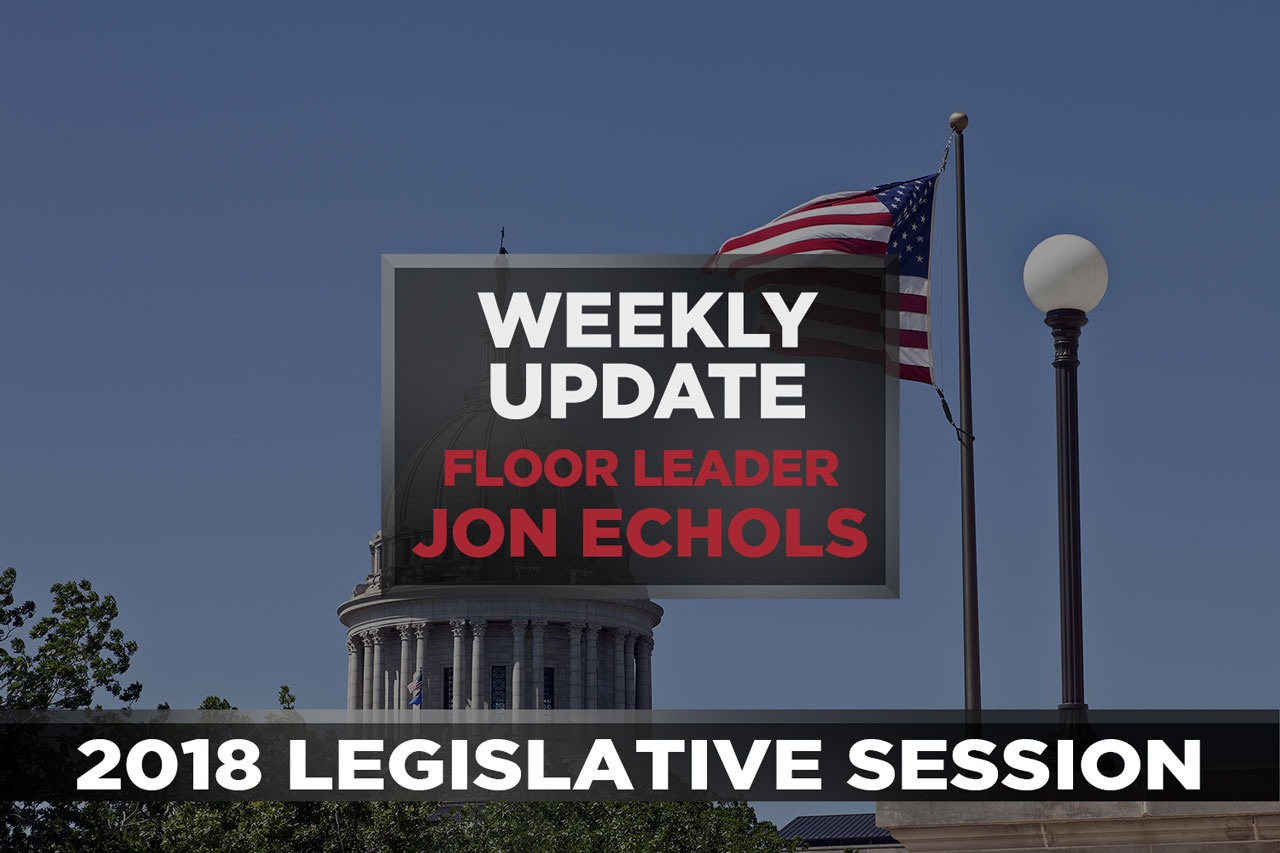
The following legislative action took place from May 4-6:
House Sends Election Reform Measure to Governor
On Wednesday, May 6, the Oklahoma House of Representatives approved Senate amendments to a measure to make it easier for third parties to get on the ballot.
House Bill 2181 lowers the number of petition signatures needed for ballot access from 5 percent of the number voting in the last general election to 3 percent voting in the last gubernatorial election.
With 825,000 votes cast for governor in 2014, the new law would mean only 24,750 petition signatures would be needed for a third party to get on the 2016 ballot.
The legislation will now proceed to the governor’s desk.
House Sends Electronic Monitoring Measure to Governor
On Tuesday, May 5, the Oklahoma House of Representatives approved Senate amendments to a measure to give the Oklahoma Pardon and Parole Board additional options for overseeing offenders who are on parole.
The legislation will now proceed to the governor’s desk.
House Bill 2187 authorizes the Pardon and Parole Board to use electronic monitoring devices with GPS technology for any person granted parole, or as disciplinary sanction as authorized by law. If the board chooses to use electronic monitoring, the offender could be required to pay towards the service as a condition of their parole.
If signed into law by the governor, the legislation would go into effect Nov. 1.
House Votes to Incentivize State Employees to Save State Money
On Tuesday, May 5, the Oklahoma House of Representative approved Senate amendments to legislation to allow for financial incentives to go to state employees who can find ways to save the state money.
The legislation will now proceed to the governor’s desk.
The specifics of the program authorized by House Bill 1044 would be set up and administered through the Office of Management and Enterprise Services. The measure prohibits an employee from receiving more than one award payment per fiscal year, bans an aware from exceeding 20 percent of the savings, requires a minimum of $5,000 in savings and sets several guidelines.
If signed into law by the governor, the legislation would go into effect Nov. 1.
Texting and Driving Ban Signed into Law
On Tuesday, May 5, legislation was signed into law to make texting while driving a primary offense, meaning law officers will be able to pull over anyone who is texting while operating a vehicle. The penalty will be $100.
House Bill 1965 is called the Trooper Nicholas Dees and Trooper Keith Burch Act of 2015, named for the two Oklahoma Highway Patrol troopers who were struck by a vehicle earlier this year while investigating an accident on Interstate 40 in Seminole County. Dees died at the scene, and Burch was hospitalized. The driver of the vehicle was using a smart phone at the time of the accident.
Oklahoma is the 46th state to pass legislation banning the practice of texting while driving.
The legislation contains exceptions for certain emergency situations and specifies it will not apply to devices operated in a voice-activated mode in which a driver’s hands would not be needed to write, send or read a text message.
The new law takes effect Nov. 1.
SoonerCare Services Measure Signed into Law
On Monday, May 4, legislation was signed into law to reduce costs while improving health services provided by the Oklahoma Health Care Authority.
House Bill 1566 directs the OHCA to issue a Request for Proposal for care coordination models for the aged, blind and disabled Oklahomans who are enrolled in the state’s SoonerCare program. According to the agency’s Annual Report, the aged, blind and disabled Oklahomans comprised 16.4 percent of the total SoonerCare enrollment in 2014. The group accounted for 46.6 percent of SoonerCare expenditures.
The first step in this process will be for the OHCA to seek information all interested parties to define the parameters for the Request for Proposal. OHCA leadership anticipates the Request for Proposal to be released in early 2016. Information about the Request for Proposal process will be posted to the agency’s website, okhca.org, as it becomes available.
The new law takes effect Nov. 1.
Justice Safety Valve Act Signed into Law
On Monday, May 4, legislation was signed into law to allow judges to impose shorter sentences for some nonviolent crimes.
House Bill 1518 allows judges to depart from mandatory minimum terms if they believe the minimum sentence is “not necessary for the protection of the public” and could “result in substantial injustice to the defendant.” Freed from having to impose a mandatory sentence, a judge in some cases could choose to divert the offender to a program to deal with underlying mental health or drug abuse issues. Judges who depart from minimum mandatory sentencing are to file a report with the district court clerk’s office. Court clerks, in turn, will file an annual report with the Oklahoma Court of Criminal Appeals, which will post the information on its website.
The measure, called the Justice Safety Valve Act, is an attempt to divert more nonviolent offenders into alternative programs and away from long terms in the state’s overcrowded prisons. The governor spoke in favor of sentencing reform during her State of the State address to lawmakers earlier this year.
Oklahoma has the top incarceration rate in the nation for women and one of the top for men. Contributing to those high rates are the more than 100 crimes that carry lengthy mandatory minimum prison sentences.
It takes effect Nov. 1

